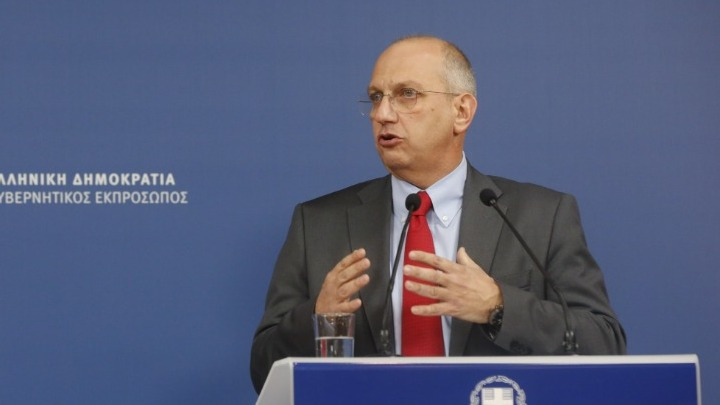The government has had to deal with successive and global crises in the three-plus years since its term began, government spokesperson Yiannis Economou pointed out in the daily press briefing on Monday, noting that in each of these crises Greece had performed better than many other European Union countries.
“Quite often, in fact, we became an example to be followed and on no occasion an example to be avoided,” he added.
This was neither easy nor accidental, Economou said, but “required a plan, the collection and analysis of data, knowhow, resourcefulness and excellent knowledge of the international environment. It called for strong political will but also a high sense of responsibility, speed in decision-making and professional management of the day-to-day. It also required quickly adapting to abrupt changes in the situation.”
As the difficulties were continuing, he added, the government was also continuing to strive to stay one step ahead. “We are holding up, even though this was either easy nor certain for a country with the size and characteristics of Greece, which had just come through a decade of the [debt] crisis, the biggest crisis in a liberal democracy after World War II.”
In spite of the problems, the government had persevered and, as shown by the figures, Greece was set to emerge from the crises with a momentum that would allow it to come even closer to the living standards of the most development European nations and to fully redress the injustices against Greeks after 2010, Economou said.
The spokesperson referred to the measures and policies adopted for a final exit from economic surveillance and its repercussions, and to redesign the country’s productive model while modernising the state, improving education and daily life and eradicating injustices in the social agenda, as well as those targeting energy autonomy, the climate crisis, restoring the country’s international prestige and defending its sovereignty and sovereign rights, among others.
“In the midst of cataclysmic crises, we succeeded in realising the greater part of our original plan,” he said, citing figures showing high growth rates, record levels of investments and imports, a decline in unemployment and support for household incomes, as well as a reduction in non-performing loans, lower public debt and a return to primary surpluses, with Greek bonds set to regain investment grade.
“All this is a strong indication of how much more we can achieve in a new four-year term without the pressure of international crises and fully rid of the consequences of the 10-year memorandum period. The hardest part is always the beginning, the foundation. This is done and from now on we will continue steadily and upward for all…” he added.
Referring to the European Commission’s first positive preliminary assessment of Greece’s second request for disbursements from the Recovery and Resilience Fund, Economou said this signalled the country’s final return to European normality and represented inflows of about 770 million euros into public coffers immediately, as well as savings of 5.2 billion euros from interest rates that would be paid to the ESM in the long term.
With the first payment and advance financing, the amount that Greece will get approaches 11 billion euros, Economou said, while Greece was in the first five countries to request disbursement of the second RRF payment and the first to apply for the third disbursement.
SOURCE; ANA-MPA









